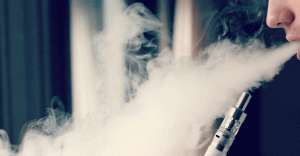A new study from ARG Senior Scientist Sarah E. Zemore and colleagues found that people in recovery who attended alternative support groups experienced more cohesion and greater satisfaction when compared with members of traditional 12-step programs. Alternative programs included Women for Sobriety, LifeRing, and SMART Recovery. Study team members included ARG scientists Lee Kaskutas and Amy Mericle, and research associate Jordana Hemberg. Results also indicated that people who attended … [Read more...]
Recent Findings
Cannabis’s Effect on Post Treatment Sobriety
People who used cannabis while undergoing treatment for an alcohol use disorder (AUD) had significantly fewer days of alcohol abstinence at the end of treatment compared with non-cannabis users, according to a new study from ARG biostatistician Meenakshi Sabina Subbaraman. Study team members included ARG research associate Deidre Patterson, and Jane Metrik and Robert M. Swift of Brown University. Findings showed that one day of cannabis use reduced the number of abstinence days by four to … [Read more...]
Cancer Survivors Drink More After Diagnosis
Cancer survivors were more likely to report heavy drinking and more frequent heavy drinking occasions compared to others at the same ages with similar drinking histories, according to a new study from the Alcohol Research Group, a program of the Public Health Institute. Heavy drinking was defined as having five or more drinks at any one time. When racial and ethnic group-specific effects were evaluated, this increased heavy drinking was found to occur among women and Whites, while no increase … [Read more...]
Poverty’s Effect on Suicide Rates
County-level suicide rates in the U.S. had a strong positive relationship with county poverty rates, while no relationships were found between county measures of unemployment or foreclosures when poverty rates were controlled, according to a new study from the Alcohol Research Group, a program of the Public Health Institute, in collaboration with University of California, Los Angeles; Oregon Health and Science University; Prevention Research Center; and the Centre for Addiction and Mental … [Read more...]
WA Support for Marijuana Legalization Grew
If the vote for marijuana legalization in Washington State were to be held again, Initiative 502 (I-502) would potentially have a stronger majority than it did in November 2012, according to a new study from the Alcohol Research Group, a program of the Public Health Institute, published today in Contemporary Drug Problems. Researchers found that among people who voted against I-502, 14 percent would now vote in favor of the measure compared to 4.8 percent of yes-voters who would change their … [Read more...]
Washington Regrets Vote to End Monopoly
Washington State residents who voted in favor of privatizing liquor sales were eight times more likely to express a desire to change their original vote than residents who voted against the measure, according to a study from the Alcohol Research Group, a program of the Public Health Institute, published today in the Journal of Studies on Alcohol and Drugs. Findings suggested that 20 percent of individuals who voted in 2011 to end the government monopoly on liquor sales have changed their … [Read more...]
Discrimination Associated with Heavy Drinking
Discrimination is associated with heavy drinking, drinking-related problems, and greater risk of alcohol use disorders according to new research from the Alcohol Research Group, a program of the Public Health Institute, published online in Social Science & Medicine. Although the health effects of discrimination have been widely studied, this systematic review is the first comprehensive assessment of the research specifically on alcohol use. Researchers reviewed 97 studies, seeking to … [Read more...]
Privatization’s Effect on Neighboring States
An increase in cross-border traffic by Washington State residents to Idaho and Oregon following Washington’s privatization of liquor stores resulted in significant revenue for the two bordering states according to a new study from the Alcohol Research Group, a program of the Public Health Institute, published online this week in the journal Addiction. However, researchers found that while Idaho and Oregon saw an increase in liquor sales, Washington’s sales declined by only a quarter of one … [Read more...]
Neighborhood’s Effect on Drinking
The socioeconomic makeup of a neighborhood may have a greater influence on people than previously thought, Associate Scientist and lead author Katherine Karriker-Jaffe suggests. The study published in Prevention Science showed men who live in affluent neighborhoods held attitudes more favorable to drinking and were more likely to drink heavily and to experience consequences related to alcohol use, such as family problems or getting into fights, than residents of other neighborhoods. … [Read more...]
15-year Trends of Harms from Other Drinkers
ARG researchers Thomas K. Greenfield, Katherine Karriker-Jaffe, Lauren Kaplan and William C. Kerr along with Sharon C. Wilsnack of the University of North Dakota recently published work that assessed data from four National Alcohol Surveys to look at depression and alcohol's harms to others (AHTO) such as difficulties with family, finances, assault and vandalism. Study authors found a significant upward trend from 2000 to 2015 for financial troubles from others drinkers. In 2015, depression … [Read more...]
- « Previous Page
- 1
- …
- 5
- 6
- 7
- 8
- Next Page »














